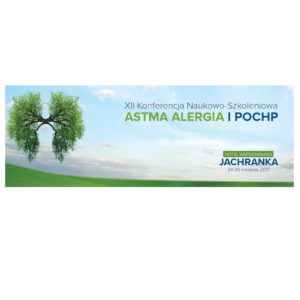Professor Henryk Skarżyński delivered the Opening Lecture at the 12th Conference ‘ALLERGY, ASTHMA, COPD’

12th Conference ‘ALLERGY, ASTHMA, COPD’ took place in the Warszawianka Conference Center in Jachranka on 24-26 August 2017. The Conference was organized by the Faculty and Clinic of Internal Medicine, Pneumology and Allergology of the Medical University of Warsaw under the patronage of HM Rector of the Medical University of Warsaw Prof. Mirosław Wielgoś, Ph.D., and the Polish Academy of Sciences Clinical Science Committee. The Opening Lecture titled ‘The role of hearing in development of modern society. The nature of risk and leadership’ was presented by Prof. Henryk Skarżyński.
 Below we quote excerpts from this lecture, introducing to the Conference participants the success of Polish otolaryngology through the prism of achievements of the Institute of Physiology and Pathology of Hearing, because although the complaints that the specialists in the Institute deal with are usually not obviously painful, they lead to isolation, suffering, often depression and social exclusion and have a tremendous impact in the contemporary society.
Below we quote excerpts from this lecture, introducing to the Conference participants the success of Polish otolaryngology through the prism of achievements of the Institute of Physiology and Pathology of Hearing, because although the complaints that the specialists in the Institute deal with are usually not obviously painful, they lead to isolation, suffering, often depression and social exclusion and have a tremendous impact in the contemporary society.
– Hearing is the basis of communication which in turn is the basis of the modern society, allowing access and exchange of information. In the modern world we have to receive and quickly select lots of information, as it is impossible to remember and process all of it. – said Prof. Skarżyński in his lecture. – A modern man lives faster and it may appear to him that he can think faster. This is why the fluency of thinking is important. As we are living faster we expect fast exchange of information everywhere – at school, work, in the office. We have less and less time, so exchange of information and our reaction are very important. We participate in various events and it is hard to imagine that we would have no possibility to listen to the surrounding music, words and other sounds. We remember these events and images and recall them. Our thinking resembles speaking in thoughts and hearing is the basis for developing speech.
During the lecture Prof. Skarżyński had presented also the numerical results of the hearing screening programs in school children conducted since more than a dozen years by the Institute. He also spoke about very important issue of hearing disorders in elderly people.
Prof. Henryk Skarżyński in his lecture has laid a particular emphasis on the issues of leadership and risk. – Subsequent challenges that I have placed in front of me and later my small team involved a great risk. The first risk I took in 1992, when I had performed a pioneering in Poland surgery of cochlear implantation in a deaf person, only 20 years after the Americans. This surgery gave hope to thousands of deaf patients in our country and was a symbolic beginning of the Polish program of deafness treatment. The success of this surgery has brought about development of otology, otosurgery, the entire fields of medicine and science related to hearing, its diagnostics and rehabilitation. We gave the new meaning to clinical engineers, who because therapists. Ten years later I conducted the first in the world surgery of cochlear implantation in a patient with partial deafness. I had an idea of supplementing one kind of hearing with another one. It is easy to say, isn’t it? But I had to consider the reaction to that event at the world’s forum of science and medicine. I had to consider that the results may be different. That was the time that I also took another risk – I decided that this first in the world surgery will be conducted and shown in real time online. I told to myself that if I try and fail, at least people in the world will know why I failed. And if I succeed, I will be able to say that the first in the world surgery of partial deafness treatment, in a patient who could hear some sounds and a part of his ear was inactive, I had conducted witnessed by many other people – said Prof. Skarżyński.
Finalizing, Prof. Skarżyński underlined that the risk of leadership in medicine is present and creates risks, but also great opportunities of development. It motivates to action, which is the chance for success, which must be shared to multiply!
The Conference, organized regularly since 1980 has interdisciplinary character and is addressed to the primary care and family physicians as well specialists: pulmonologists, allergologists, internists, pediatricians, laryngologists and dermatologists. Organizers invite the eminent experts to speak about the present state of knowledge in allergy, asthma and COPD. A number of randomized multicenter clinical studies aimed at assessment of effectiveness and safety of new drugs for obstructive diseases of pulmonary system had been finalized recently. Their results have allowed developing new recommendations and guidelines. New technologies have been introduced in diagnostics and therapy on pulmonary diseases. The Conference program included also workshops for hands-on training in the newest diagnostic methods and uses of the modern examination equipment.